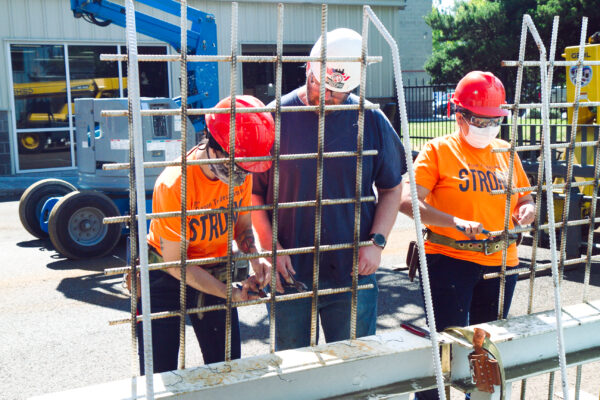Future Ready Oregon: A Win for Workforce Equity

In a tremendous win for workforce training equity, Governor Kate Brown signed the Future Ready Oregon bill into law. Future Ready Oregon is a blueprint for change and an opportunity to build an economy in Oregon that supports all workers in achieving their dreams and building a more prosperous future.
Funding from this bill will create new workforce development programs and expand existing programs in healthcare, technology, manufacturing, and other high-demand sectors while reducing barriers to employment. This investment package will specifically support community college Career Pathways programs, local Workforce Boards, and apprenticeship programs as they expand their capacity to provide free career education and support services to more Oregonians. Funding will also strengthen pre-apprenticeship like Oregon Tradeswomen’s Pathways to Success program that demonstrates strong outcomes for women in construction. Oregon Tradeswomen program graduates start their careers making an average wage of $22.81 per hour.
In addition to supporting and expanding current workforce development programs, Future Ready Oregon encourages innovation by providing Workforce Ready Grants to fund education and training programs in industries lacking accessible career pathways. With these programs, there is a renewed commitment to continuous improvement and accountability by tracking data to measure success outcomes for underserved populations.
Oregon’s Racial Justice Council and the Governor’s Workforce Workgroup helped guide this policy through a lens focused on equity to ensure minority groups like women and people of color are not left out of economic recovery. Oregon Tradeswomen’s Executive Director, Kelly Kupcak, served on the Governor’s Workforce Workgroup and contributed to the proposal which includes the goal of serving at least 50% women through these new and existing programs.
Future Ready Oregon makes much-needed new investments in the programs that help workers overcome barriers to pursuing careers providing economic security through good wages, health insurance, and retirement benefits. These investments will provide resources to offset the costs of support services such as childcare, transportation, and housing stabilization. When quality training is coupled with direct support, workers are successful in securing employment, businesses can meet their labor demands with a qualified workforce, and our communities have a shared prosperity model that works for everyone.